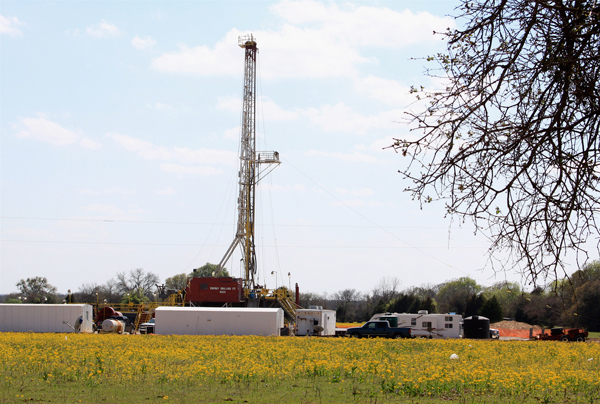- Scholarship Awards
- La Feria ISD is Set to Get Its Own Police Department
- All-Star Regionals
- LFECHS Non-Varsity Band Represents at State
- School Program Continues to Provide Fun Summer Activities
- Conservation Group Wildlife in Focus Expands Unique Photography Contest to Reach More Landowners, Photographers Statewide
- Local Birding Center Offers a Variety of Events
- Valley Native is Heading to the Olympics
- Hurricane Preparedness For Families
- Golf Tournament to be Held toHelp Cancer Patients
Contaminated Texas Drinking Water Linked to Faulty Shale Gas Wells
- Updated: September 26, 2014
Study Cites Leaks Through Cement and Casings
by John Michaelson/TNS
FORT WORTH, Texas – A new study finds contamination of drinking water in parts of Texas from the extraction of shale gas, but the primary cause is not what some people had feared.
Researcher Avner Vengosh says the contamination of the wells that they analyzed was not directly from the process of hydraulic fracturing deep underground, but from well-integrity problems such as poor casing and cementing.

There is contamination of drinking water associated with hydraulic fracturing, but a new study also finds the primary cause is from faulty shale gas wells, not migrating methane from the process itself. Photo credit: Roy Luck/Flickr.
“We can tell that the contamination derived from leaking of the shale gas wells, and therefore if those leaks could be fixed and corrected, this contamination could be avoided and stopped.”
The sampling was conducted in 2012 and 2013 on 20 wells overlying the Barnett shale in Texas.
Vengosh says this study was unique because it employed a combination of noble gas and hydrocarbon tracers, allowing the researchers to distinguish between the signatures of naturally occurring methane and stray gas contamination from drill sites.
“We are trying to understand based on the best available scientific tools,” says Vengosh. “We developed some new tools here, how we can do the correct monitoring for – and making sure that there are or are not in some cases – contamination.”
The study, which also found the same issues with contaminated wells in Pennsylvania, is published in the Proceedings of the National Academy of Sciences.


